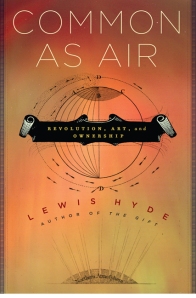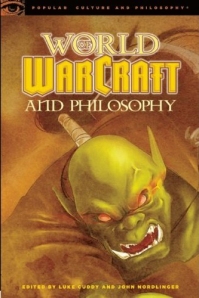
This isn’t a review, I wouldn’t be that self serving, but, I did want to make it known on this site why I seem to have abandoned it as of late.
I’ve not abandoned it, it’s just been that I have been focusing my time on a wide array of things, of which this site has become one of many things I spend time doing.
Last year, I tried to translate an official German-language Final Fantasy XI novel in hopes being able to finagle a deal to translate the books officially for Square-Enix. They passed on the deal, even though it would have most likely done nothing but print them money.
I realized I enjoyed the job of translating, so I wanted to do more, more that I could then sell, legally.
I happened across gutenberg.net and found it had a large collection of German language books. I looked through their collections and found a few that were not only in public domain, but had also never been translated into English.
The one I first decided to translate was called “Japanische Marchen” – Japanese Fairy Tales. While the tales themselves were Japanese in origin, they were written down in this book for a German audience.
There are 24 stories in the collection. I believe two can be read via the sample on Amazon.com, and part of one can be read on the Barnes & Noble site (so if you want to read more of a sample than this one story, head to Amazon).
The book can be found for the Kindle at, well, the link is huge, but if you go to amazon.com and type in B00DGYKEOE in the search field, it will come up. There will soon be a print version of the book available there as well.
For Nook, you can find it at http://www.barnesandnoble.com/w/japanische-m-auml-rchen-bradley-hall/1115772053?ean=2940016450643
Unfortunately, B&N nor Amazon allows authors to pick what becomes the sample of a book, so here you go, my favorite short story from this collection. I hope you like it.
The Wily Policeman
The former Emperor of Korea had set up a secret police, which had to maintain peace and order in the city that should have prevented robberies and theft. But as so often happens the crime did not end and the Emperor was quite annoyed. He sent for the chief of police and began to rebuke him. The chief of police, however, defended his policemen and said they were all efficient and skillful.
The Emperor was clever and knew all the tricks that thieves can use, so he would put his police force to the test. He asked the chief to have them all arrive in the palace the next morning.
In the morning, the police were all gathered in the hall of the palace, the Emperor appeared holding a silk bag in his hand. This bag was filled with gold and the Emperor had someone hang it from the ceiling in the middle of the hall, so high that no one could reach it with his hand.
Then the Emperor said:
“Here, the bag hangs with gold. It will hang for three days. A guard will always be there. If one of you manages to remove this bag in three days, without anyone noticing, and no one hearing you remove the bag and its contents, you all shall henceforth remain in my service. But if any of you fail the task, I’ll chase you all to hell!”
There was a general shaking of heads and saddened, they went home, because it seemed impossible to remove the bag, because the emperor had placed a guard of four men who had to guard the bag day and night. The guards were threatened with beheading if they were negligent.
Sun came on the third day, the bag was hanging from the ceiling, still untouched and the police expected their release. To the astonishment of all, one of the youngest policemen said he wanted to try it, but said he needed to have at least two more days.
He was taken to the Emperor who laughed at the young man and said, “Even if I give you ten weeks, you will not succeed!”
“That may be true,” he replied. “And I think even that only a miracle can help us, but perhaps such a miracle will occur in the two days.” The Emperor liked the bold response. “Well, so be it! These two days are granted to you,” he decided.
The young policeman looked at the bag in the hall very well, and then he went home and made himself a very similar bag, which he filled with small stones.
On the second day he took this bag, put it in the sleeve of his jacket, and went to the Emperor. The Emperor received him and asked if the miracle had already happened.
The policeman asked the Emperor to be allowed to look at the bag again. The Emperor approved and the policeman was taken to where the bag was still hanging, guarded by four soldiers.
After he had looked at the bag for a while from all sides, he asked whether it would be permissible to take the bag in his hand. The Emperor approved this as well. Here, the policeman took a stool and stood upon it and took the bag from the hook, looked at the Emperor, and placed the bag in his sleeve, saying:
“This is how to remove the bag!”
The emperor replied, laughing: “Yes, but we are all looking at you, so you wouldn’t be able to get away with it. So hang it back on the ceiling and acknowledge that not even you can do it.”
The policeman showed an apparently sad face, pulled the bag out again with a sigh and hung it up. He had not taken out the bag of gold, but the bag he made himself and filled with stones. That bag he hung on the ceiling, while he kept the real bag in his sleeve. He then told left the Emperor, telling him he hoped to be able to perform the feat the next morning.
The emperor therefore doubled the guard for the night, and the hall had to be lit so brightly that the bag could always be seen.
The next day came and the Emperor ordered all of the policemen gather around in the hall, as the emperor intended to dismiss them from their service. The Emperor could be quite rude and turned to the young policeman, asking him scornfully if the miracle had happened.
“I think so,” he replied.
“He’s totally crazy or outrageously naughty!” cried the Emperor. “Does he believe, then, I can not see? The bag still hangs!”
“I see,” replied the young policeman.” That there hangs a bag, whether or not it is the real bag, I doubt it!”
“This is really too much,” cried the Emperor. “Bring down the bag and bring it here,” he ordered the guard.
The bag was removed and brought to the Emperor, who opened it, but made a very vulnerable face as he saw just bricks and rocks in the bag and then looked closer and realized it was not the same bag that was originally hung from the ceiling.
“How did you do it?” he asked the cunning policeman. The young policeman man told how he had made an identical bag and then switched the bags in the presence of the emperor.
“We have a devilishly clever fellow,” said the Emperor. “And since you seem to me to be the wisest of all, you shall be the Chief and I will not dismiss your colleagues. See to it that your police force do their duty and emulate you!” And so it happened!
Translator’s Note (Karl Alberti): This story is of Korean origin. It was recorded in this collection since Korea was annexed by Japan in 1910 and is now known as “Chosen”. The above story is reminiscent of the “cunning thief” of “1001 Nights.





The Wily Policeman
Posted in Commentary, Intellectual Property, Uncategorized on June 21, 2013 by Bradley HallThis isn’t a review, I wouldn’t be that self serving, but, I did want to make it known on this site why I seem to have abandoned it as of late.
I’ve not abandoned it, it’s just been that I have been focusing my time on a wide array of things, of which this site has become one of many things I spend time doing.
Last year, I tried to translate an official German-language Final Fantasy XI novel in hopes being able to finagle a deal to translate the books officially for Square-Enix. They passed on the deal, even though it would have most likely done nothing but print them money.
I realized I enjoyed the job of translating, so I wanted to do more, more that I could then sell, legally.
I happened across gutenberg.net and found it had a large collection of German language books. I looked through their collections and found a few that were not only in public domain, but had also never been translated into English.
The one I first decided to translate was called “Japanische Marchen” – Japanese Fairy Tales. While the tales themselves were Japanese in origin, they were written down in this book for a German audience.
There are 24 stories in the collection. I believe two can be read via the sample on Amazon.com, and part of one can be read on the Barnes & Noble site (so if you want to read more of a sample than this one story, head to Amazon).
The book can be found for the Kindle at, well, the link is huge, but if you go to amazon.com and type in B00DGYKEOE in the search field, it will come up. There will soon be a print version of the book available there as well.
For Nook, you can find it at http://www.barnesandnoble.com/w/japanische-m-auml-rchen-bradley-hall/1115772053?ean=2940016450643
Unfortunately, B&N nor Amazon allows authors to pick what becomes the sample of a book, so here you go, my favorite short story from this collection. I hope you like it.
The Wily Policeman
The former Emperor of Korea had set up a secret police, which had to maintain peace and order in the city that should have prevented robberies and theft. But as so often happens the crime did not end and the Emperor was quite annoyed. He sent for the chief of police and began to rebuke him. The chief of police, however, defended his policemen and said they were all efficient and skillful.
The Emperor was clever and knew all the tricks that thieves can use, so he would put his police force to the test. He asked the chief to have them all arrive in the palace the next morning.
In the morning, the police were all gathered in the hall of the palace, the Emperor appeared holding a silk bag in his hand. This bag was filled with gold and the Emperor had someone hang it from the ceiling in the middle of the hall, so high that no one could reach it with his hand.
Then the Emperor said:
“Here, the bag hangs with gold. It will hang for three days. A guard will always be there. If one of you manages to remove this bag in three days, without anyone noticing, and no one hearing you remove the bag and its contents, you all shall henceforth remain in my service. But if any of you fail the task, I’ll chase you all to hell!”
There was a general shaking of heads and saddened, they went home, because it seemed impossible to remove the bag, because the emperor had placed a guard of four men who had to guard the bag day and night. The guards were threatened with beheading if they were negligent.
Sun came on the third day, the bag was hanging from the ceiling, still untouched and the police expected their release. To the astonishment of all, one of the youngest policemen said he wanted to try it, but said he needed to have at least two more days.
He was taken to the Emperor who laughed at the young man and said, “Even if I give you ten weeks, you will not succeed!”
“That may be true,” he replied. “And I think even that only a miracle can help us, but perhaps such a miracle will occur in the two days.” The Emperor liked the bold response. “Well, so be it! These two days are granted to you,” he decided.
The young policeman looked at the bag in the hall very well, and then he went home and made himself a very similar bag, which he filled with small stones.
On the second day he took this bag, put it in the sleeve of his jacket, and went to the Emperor. The Emperor received him and asked if the miracle had already happened.
The policeman asked the Emperor to be allowed to look at the bag again. The Emperor approved and the policeman was taken to where the bag was still hanging, guarded by four soldiers.
After he had looked at the bag for a while from all sides, he asked whether it would be permissible to take the bag in his hand. The Emperor approved this as well. Here, the policeman took a stool and stood upon it and took the bag from the hook, looked at the Emperor, and placed the bag in his sleeve, saying:
“This is how to remove the bag!”
The emperor replied, laughing: “Yes, but we are all looking at you, so you wouldn’t be able to get away with it. So hang it back on the ceiling and acknowledge that not even you can do it.”
The policeman showed an apparently sad face, pulled the bag out again with a sigh and hung it up. He had not taken out the bag of gold, but the bag he made himself and filled with stones. That bag he hung on the ceiling, while he kept the real bag in his sleeve. He then told left the Emperor, telling him he hoped to be able to perform the feat the next morning.
The emperor therefore doubled the guard for the night, and the hall had to be lit so brightly that the bag could always be seen.
The next day came and the Emperor ordered all of the policemen gather around in the hall, as the emperor intended to dismiss them from their service. The Emperor could be quite rude and turned to the young policeman, asking him scornfully if the miracle had happened.
“I think so,” he replied.
“He’s totally crazy or outrageously naughty!” cried the Emperor. “Does he believe, then, I can not see? The bag still hangs!”
“I see,” replied the young policeman.” That there hangs a bag, whether or not it is the real bag, I doubt it!”
“This is really too much,” cried the Emperor. “Bring down the bag and bring it here,” he ordered the guard.
The bag was removed and brought to the Emperor, who opened it, but made a very vulnerable face as he saw just bricks and rocks in the bag and then looked closer and realized it was not the same bag that was originally hung from the ceiling.
“How did you do it?” he asked the cunning policeman. The young policeman man told how he had made an identical bag and then switched the bags in the presence of the emperor.
“We have a devilishly clever fellow,” said the Emperor. “And since you seem to me to be the wisest of all, you shall be the Chief and I will not dismiss your colleagues. See to it that your police force do their duty and emulate you!” And so it happened!
Translator’s Note (Karl Alberti): This story is of Korean origin. It was recorded in this collection since Korea was annexed by Japan in 1910 and is now known as “Chosen”. The above story is reminiscent of the “cunning thief” of “1001 Nights.
2 Comments »